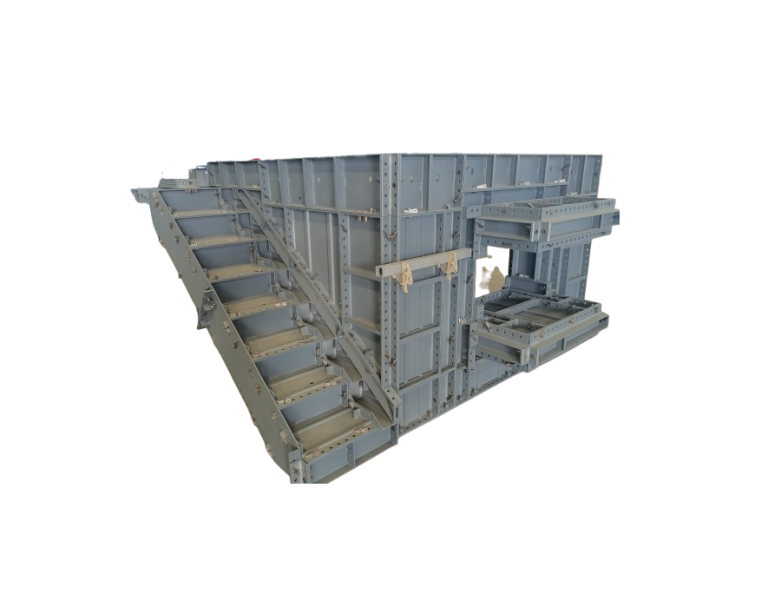Product Details
Aluminum formwork systems are designed for efficient concrete construction, utilizing high-strength aluminum alloy to create lightweight yet durable panels that provide excellent structural integrity during the pouring process. The modular design allows for flexible configurations, accommodating various building designs and dimensions while ensuring a smooth surface finish that enhances the aesthetic quality of the concrete. These formwork panels are reusable, making them a cost-effective and sustainable choice, as they can be employed multiple times across different projects, significantly reducing waste. Additionally, the quick assembly and disassembly features streamline the construction timeline, lowering labor costs and improving overall efficiency. Precision engineering ensures that each component is manufactured to exact specifications, resulting in accurate dimensions and alignment that contribute to the quality of the finished structure.
Description and Components:
- High-Strength Aluminum Profiles: The formwork is made from high-strength aluminum alloy, providing a lightweight yet durable framework that can withstand the pressures of freshly poured concrete.
- Modular Design: The system consists of interchangeable panels and components, allowing for flexible configurations to suit various architectural designs and project requirements.
- Smooth Surface Finish: The aluminum panels offer a smooth surface that results in high-quality concrete finishes, reducing the need for additional surface treatments and enhancing the overall aesthetic of the structure.
Functionality:
- Structural Support: The aluminum formwork provides a strong and stable framework that supports the weight of freshly poured concrete, ensuring the integrity of the structure during curing.
- Precision and Accuracy: The modular design allows for precise alignment and dimensions, resulting in high-quality concrete finishes and reducing the need for extensive post-construction adjustments.
- Speed of Construction: The lightweight nature of aluminum and the quick assembly features enable faster installation and removal, significantly reducing overall construction time and improving project efficiency.
- Cost-Effectiveness: By being reusable for multiple projects, aluminum formwork systems lower material costs and reduce waste, making them a financially viable option for construction companies.
- Enhanced Safety: The robust design and secure fastening mechanisms of aluminum formwork contribute to a safer working environment by minimizing the risk of formwork failure during the concrete pouring process.
Applications:
- Residential Buildings: Aluminum formwork is commonly used in the construction of residential complexes, providing a cost-effective and efficient method for creating walls, floors, and ceilings.
- Commercial Structures: These systems are ideal for commercial buildings, such as offices and retail spaces, where quick construction and high-quality finishes are essential.
- High-Rise Construction: Aluminum formwork is particularly suitable for high-rise buildings, as its lightweight nature reduces the overall load on the structure while maintaining strength and stability.
Advantages:
- Lightweight and Easy to Handle: Aluminum formwork is much lighter than traditional concrete formwork materials, making it easier to transport, handle, and install, which reduces labor costs and time.
- High Durability: Made from high-strength aluminum alloy, these formwork systems are resistant to corrosion and wear, allowing for multiple uses without significant degradation in quality.
- Cost-Effective: The reusability of aluminum formwork reduces material costs over time, as it can be used for numerous projects, leading to lower overall construction expenses.
- Precision and Quality: The modular design ensures accurate dimensions and alignment, resulting in high-quality concrete finishes and minimizing the need for additional finishing work.
- Faster Construction Time: The quick assembly and disassembly of aluminum formwork systems significantly speed up the construction process, allowing for faster project completion and improved efficiency.

